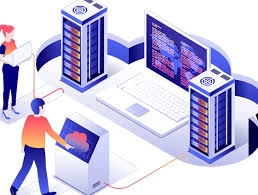Mass Notification System: Emergency Preparedness in the Digital
A Mass Notification System (MNS) is a critical tool for ensuring effective communication during emergencies and other critical events. These systems are designed to send alerts and information to a large number of people quickly and efficiently. Whether it’s a natural disaster, a security threat, or a public health emergency, an MNS helps organizations keep people informed and safe by delivering timely and accurate messages across various communication channels.
One of the primary functions of a Mass Notification System is to provide real-time alerts. In situations where every second counts, such as a tornado warning or an active shooter incident, the ability to instantly notify people can save lives. MNS can send notifications via multiple channels, including SMS, email, voice calls, social media, and mobile apps, ensuring that the message reaches as many people as possible. This multi-channel approach is crucial because different people have different communication preferences and access to various devices.
Moreover, Mass Notification Systems are highly customizable. Organizations can tailor the messages to specific groups based on their location, role, or other criteria. This targeted communication ensures that the right people receive the right information at the right time. For example, during a campus lockdown, students and faculty might receive different instructions than administrative staff. This level of customization enhances the effectiveness of the communication and helps prevent confusion during critical events.
Integration with other systems is another significant advantage of Mass Notification System. Modern Mass Notification Systems can integrate with building management systems, fire alarm systems, and other security infrastructure. This integration allows for automated responses to certain events. For instance, if a fire alarm is triggered, the MNS can automatically send evacuation instructions to everyone in the affected building. This seamless integration reduces response times and improves the overall safety of the facility.
The importance of a Mass Notification System extends beyond immediate emergency alerts. These systems are also valuable for routine communication and operational purposes. Schools can use MNS to notify parents about weather-related closures, companies can inform employees about IT system outages, and government agencies can provide updates on public services. This versatility makes MNSa valuable communication tool for a wide range of scenarios.
Despite the numerous benefits, implementing a Mass Notification System comes with challenges. Ensuring the accuracy and reliability of the system is paramount. False alarms or missed messages can erode trust and reduce the effectiveness of future alerts. Therefore, regular testing and maintenance of the system are essential. Additionally, organizations must provide training to ensure that staff members know how to use the system effectively during an actual emergency.
In conclusion, a Mass Notification System is an indispensable tool for modern organizations seeking to enhance their communication capabilities during emergencies and routine operations.Its ability to deliver real-time, targeted alerts across multiple channels makes it a powerful asset for safeguarding people and ensuring they receive critical information when it matters most. As technology continues to evolve, the capabilities and importance of Mass Notification Systems will undoubtedly grow, further cementing their role in public safety and organizational resilience.
https://www.marketdigits.com/mass-notification-system-market-1694155669
A Mass Notification System (MNS) is a critical tool for ensuring effective communication during emergencies and other critical events. These systems are designed to send alerts and information to a large number of people quickly and efficiently. Whether it’s a natural disaster, a security threat, or a public health emergency, an MNS helps organizations keep people informed and safe by delivering timely and accurate messages across various communication channels.
One of the primary functions of a Mass Notification System is to provide real-time alerts. In situations where every second counts, such as a tornado warning or an active shooter incident, the ability to instantly notify people can save lives. MNS can send notifications via multiple channels, including SMS, email, voice calls, social media, and mobile apps, ensuring that the message reaches as many people as possible. This multi-channel approach is crucial because different people have different communication preferences and access to various devices.
Moreover, Mass Notification Systems are highly customizable. Organizations can tailor the messages to specific groups based on their location, role, or other criteria. This targeted communication ensures that the right people receive the right information at the right time. For example, during a campus lockdown, students and faculty might receive different instructions than administrative staff. This level of customization enhances the effectiveness of the communication and helps prevent confusion during critical events.
Integration with other systems is another significant advantage of Mass Notification System. Modern Mass Notification Systems can integrate with building management systems, fire alarm systems, and other security infrastructure. This integration allows for automated responses to certain events. For instance, if a fire alarm is triggered, the MNS can automatically send evacuation instructions to everyone in the affected building. This seamless integration reduces response times and improves the overall safety of the facility.
The importance of a Mass Notification System extends beyond immediate emergency alerts. These systems are also valuable for routine communication and operational purposes. Schools can use MNS to notify parents about weather-related closures, companies can inform employees about IT system outages, and government agencies can provide updates on public services. This versatility makes MNSa valuable communication tool for a wide range of scenarios.
Despite the numerous benefits, implementing a Mass Notification System comes with challenges. Ensuring the accuracy and reliability of the system is paramount. False alarms or missed messages can erode trust and reduce the effectiveness of future alerts. Therefore, regular testing and maintenance of the system are essential. Additionally, organizations must provide training to ensure that staff members know how to use the system effectively during an actual emergency.
In conclusion, a Mass Notification System is an indispensable tool for modern organizations seeking to enhance their communication capabilities during emergencies and routine operations.Its ability to deliver real-time, targeted alerts across multiple channels makes it a powerful asset for safeguarding people and ensuring they receive critical information when it matters most. As technology continues to evolve, the capabilities and importance of Mass Notification Systems will undoubtedly grow, further cementing their role in public safety and organizational resilience.
https://www.marketdigits.com/mass-notification-system-market-1694155669
Mass Notification System: Emergency Preparedness in the Digital
A Mass Notification System (MNS) is a critical tool for ensuring effective communication during emergencies and other critical events. These systems are designed to send alerts and information to a large number of people quickly and efficiently. Whether it’s a natural disaster, a security threat, or a public health emergency, an MNS helps organizations keep people informed and safe by delivering timely and accurate messages across various communication channels.
One of the primary functions of a Mass Notification System is to provide real-time alerts. In situations where every second counts, such as a tornado warning or an active shooter incident, the ability to instantly notify people can save lives. MNS can send notifications via multiple channels, including SMS, email, voice calls, social media, and mobile apps, ensuring that the message reaches as many people as possible. This multi-channel approach is crucial because different people have different communication preferences and access to various devices.
Moreover, Mass Notification Systems are highly customizable. Organizations can tailor the messages to specific groups based on their location, role, or other criteria. This targeted communication ensures that the right people receive the right information at the right time. For example, during a campus lockdown, students and faculty might receive different instructions than administrative staff. This level of customization enhances the effectiveness of the communication and helps prevent confusion during critical events.
Integration with other systems is another significant advantage of Mass Notification System. Modern Mass Notification Systems can integrate with building management systems, fire alarm systems, and other security infrastructure. This integration allows for automated responses to certain events. For instance, if a fire alarm is triggered, the MNS can automatically send evacuation instructions to everyone in the affected building. This seamless integration reduces response times and improves the overall safety of the facility.
The importance of a Mass Notification System extends beyond immediate emergency alerts. These systems are also valuable for routine communication and operational purposes. Schools can use MNS to notify parents about weather-related closures, companies can inform employees about IT system outages, and government agencies can provide updates on public services. This versatility makes MNSa valuable communication tool for a wide range of scenarios.
Despite the numerous benefits, implementing a Mass Notification System comes with challenges. Ensuring the accuracy and reliability of the system is paramount. False alarms or missed messages can erode trust and reduce the effectiveness of future alerts. Therefore, regular testing and maintenance of the system are essential. Additionally, organizations must provide training to ensure that staff members know how to use the system effectively during an actual emergency.
In conclusion, a Mass Notification System is an indispensable tool for modern organizations seeking to enhance their communication capabilities during emergencies and routine operations.Its ability to deliver real-time, targeted alerts across multiple channels makes it a powerful asset for safeguarding people and ensuring they receive critical information when it matters most. As technology continues to evolve, the capabilities and importance of Mass Notification Systems will undoubtedly grow, further cementing their role in public safety and organizational resilience.
https://www.marketdigits.com/mass-notification-system-market-1694155669
0 Yorumlar
0 hisse senetleri





